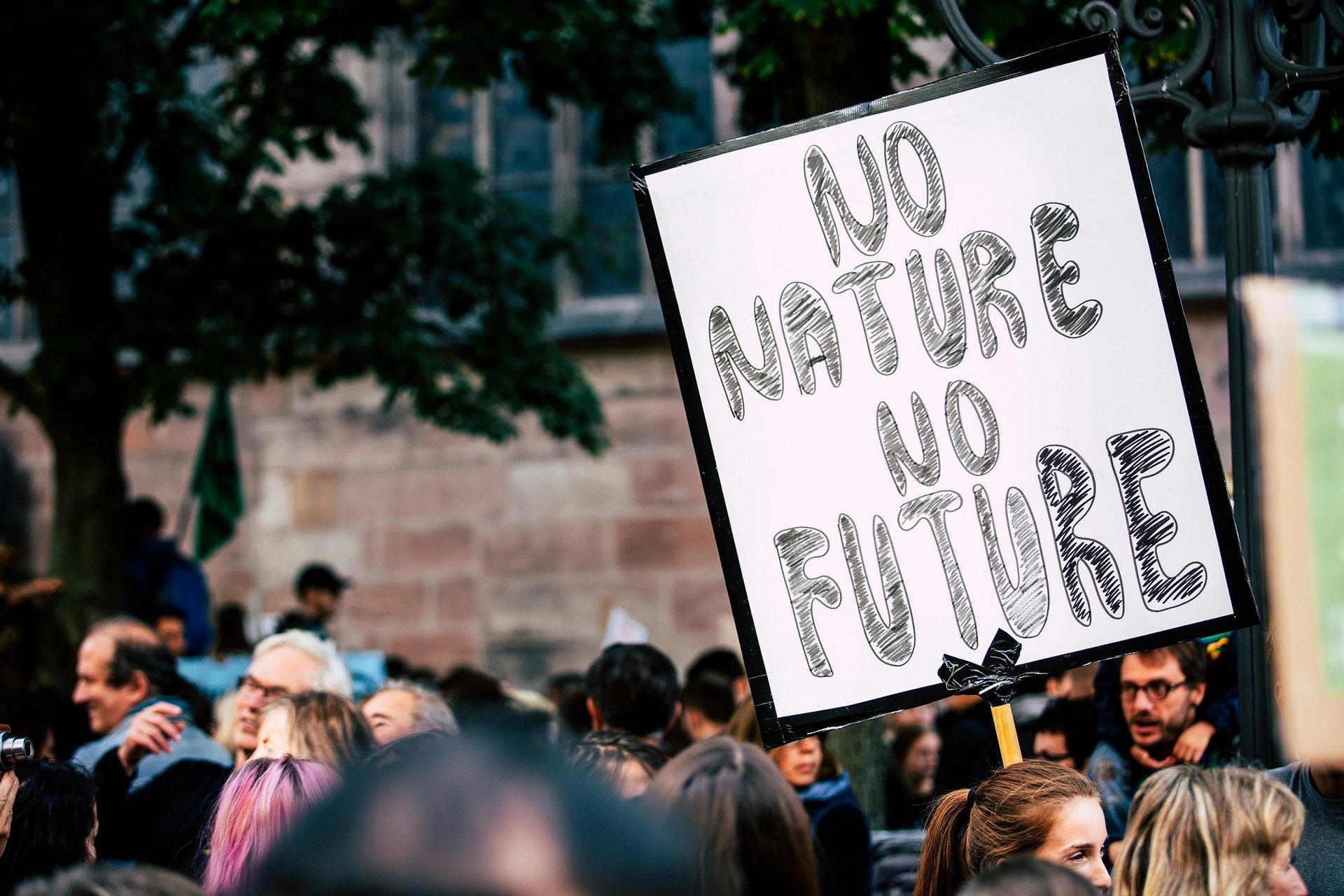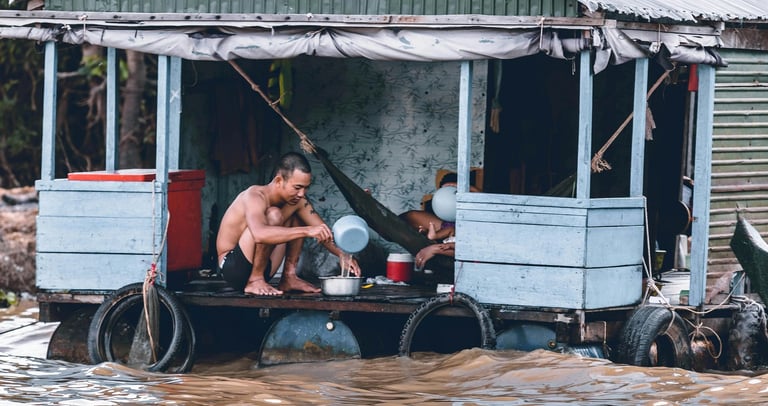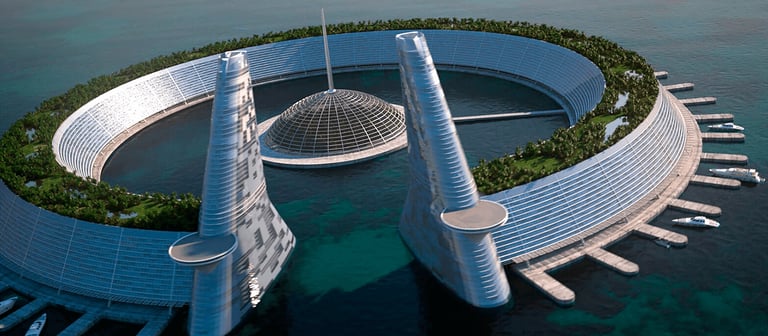
The Real Cost of Green Transition: Can Ecological Economics Save Us?
Explore how global inequalities drive environmental degradation, the ecological macroeconomics of the Core-Periphery dilemma, and why solutions like the Venus Project challenge today’s broken systems.
Edú Saldaña
5/8/20245 min read
Ecological Economics or Global Exploitation? The Core-Periphery Dilemma & Nature’s True Cost
What if I told you that the global obsession with “green finance” is a distraction from the real issue? What if our current economic systems aren't just failing to protect the environment, but are actively making things worse? This is one of the key discussions in the "Ecological Macroeconomics for a Shared Planet: towards a Global Political Ecology of Money, Finance and Production" research published by PhD. Jeffrey Althouse. It’s not just about solving climate change but recognizing how the global financial system itself, structured around the North-South divide, perpetuates inequality and ecological destruction.
We are told that “more green investments” will solve everything, but this narrative conveniently ignores how global inequalities drive environmental degradation. Dr. Althouse’s research and our follow-up discussion over virtual coffee reveal the deeper flaws of these systems. How can we achieve true sustainability when the countries most responsible for climate change are also the ones most capable of shielding themselves from its worst effects? This is not just about the environment. It’s about human lives, exploitation, and a system designed to benefit a few at the expense of many.
The Human-Nature Disconnect
Our economic systems have long viewed nature as nothing more than a resource to be exploited. As discussed with Dr. Althouse, this instrumental view of nature is at the heart of ecological macroeconomics. The idea that nature is simply an input into economic growth reflects a dangerous detachment from the very thing that sustains us. This isn’t just theoretical. George Carlin captured the absurdity of this mindset with his infamous line, “Planet isn't going anywhere. We are.”
Take a look around—the way we interact with nature is fundamentally unsustainable. Whether it’s deforestation, fossil fuel extraction, or monoculture farming, the exploitation of natural resources is woven into the very fabric of our global economy. Everything is commodified. Even the air we breathe has become an asset in carbon markets. And here’s the kicker: The financialization of nature, as discussed with Dr. Althouse, turns life itself into something you can trade. Think back to the Monsanto Agreement from the 90s, where intellectual property was extended to genetically modified organisms (GMOs), commodifying biological life. Nature became a tradable asset, and we were none the wiser.
In ecological macroeconomics, this instrumental view of nature is recognized as part of the problem. Just like Carlin’s sardonic remark about how we try to “save the planet” while completely ignoring how messed up our societies are, our financial systems view nature through a narrow, exploitative lens. We need to shift our mindset to understand that nature isn’t just another commodity—it's our lifeline.
The Core-Periphery Dilemma: Inequality on a Global Scale
The Core-Periphery dilemma is one of the most critical concepts in understanding the global environmental crisis. The global economy operates in a way that disproportionately benefits the core—wealthier nations—while the periphery—developing countries—bears the brunt of environmental destruction. The very countries that contribute the least to environmental degradation are the ones most impacted by it.
In our conversation, Dr. Althouse highlighted how low-income countries are caught in a vicious cycle. To maintain economic stability, they are pressured to export raw materials at cheap prices, fueling the growth of wealthier nations. Yet, in doing so, these countries are eroding their own natural resources and worsening their environmental conditions. Think about it: countries like Peru, Brazil, Indonesia, and the Democratic Republic of Congo are home to some of the world’s most biodiverse ecosystems, yet they are also among the most exploited for raw material extraction. The result? A lose-lose situation where biodiversity loss accelerates, and poverty deepens.
According to a UNEP report, over 90% of biodiversity losses and more than half of greenhouse gas emissions are linked to extraction and raw material processing. This exploitation perpetuates the same inequalities that we see across the board—wealthy countries continue to extract resources and labor from poorer nations while insulating themselves from the worst impacts of environmental damage. It’s a perverse system, as George Carlin would say, where “It’s a big club, and you ain’t in it.” The exploitation isn’t just environmental—it’s fundamentally tied to human lives, leaving the Global South stuck in a cycle of dependency and environmental harm.
The Venus Project: A Radical Reimagining of Human-Nature Relations
So, what’s the solution? In our discussion with Dr. Althouse, I shared alternative frameworks, particularly Jacque Fresco’s Resource-Based Economy as postulated in the Venus Project. The Venus Project offers a radical departure from traditional economic models, envisioning a world where resources are managed sustainably for the benefit of all, not just the wealthy few.
In essence, it’s an economic system designed around the needs of humanity and the environment, rather than the relentless pursuit of profit. Dr. Althouse’s research delves into how such a system could challenge the financialization of nature, providing an alternative to the current system’s exploitation of the environment and marginalized communities. Imagine a world where nature isn’t a commodity to be traded, but a shared resource to be nurtured and protected.


This isn’t just a utopian dream. The ecological macroeconomic framework recognizes that our current systems are inadequate for addressing the scale of the environmental crisis. As climate change accelerates, it will disproportionately affect the poorest and most vulnerable. A Resource-Based Economy could provide a pathway to a more just and sustainable future. But here’s the catch: implementing such a system would require dismantling the very power structures that benefit from the status quo.
Carlin said it best: “The earth will be here long after we’re gone.” It’s not the planet that’s at risk—it’s us. And if we don’t rethink our relationship with nature, we’re setting ourselves up for failure.
Green Finance: A Convenient Distraction?
As Dr. Althouse’s research argues, the focus on filling the so-called “green finance gap” is just another convenient distraction. Sure, more money might help mitigate some of the immediate impacts of climate change, but it won’t solve the root problem. The truth is, the powerful groups that control the global economy are using the language of sustainability to perpetuate their dominance.
Green finance, as it stands today, is largely about making money off the back of environmental destruction. Carbon markets, for example, allow companies to continue polluting while paying for carbon credits—a get-out-of-jail-free card for the wealthy, while the poor and vulnerable bear the brunt of the damage. This focus on financialization sidesteps the deeper structural changes needed to address global inequalities and the human-nature disconnect.
We need more than just “green” investments. We need a global redistribution of resources and a fundamental shift in how we view our relationship with nature. The Venus Project’s Resource-Based Economy offers a glimpse of what could be possible, but it’s going to take a radical reimagining of our systems—and that’s something most people aren’t ready for.
Conclusion
In conclusion, Dr. Althouse’s research reminds us that without systemic change, any attempt at a green transition will fall short. The core-periphery divide, the financialization of nature, and the exploitation of marginalized communities are all interconnected. If we truly want to address climate change and create a more just global society, we need to rethink the very foundations of our economic systems.
So, here’s my question to you: Are you ready to challenge the status quo? Can you imagine a world where nature isn’t commodified, where resources are shared for the benefit of all, and where global inequalities are addressed head-on?
If this resonates with you, I invite you to follow me on social media to stay updated on my upcoming blog posts, where I’ll continue exploring these pressing issues. Let’s keep the conversation going, dive deeper into the solutions, and challenge the status quo together. Because if we don’t, who will?


Kunan Project
We use humor to break down complex issues, connect communities, and build a more inclusive future
© 2025. All rights reserved.
info@kunanproject.com
